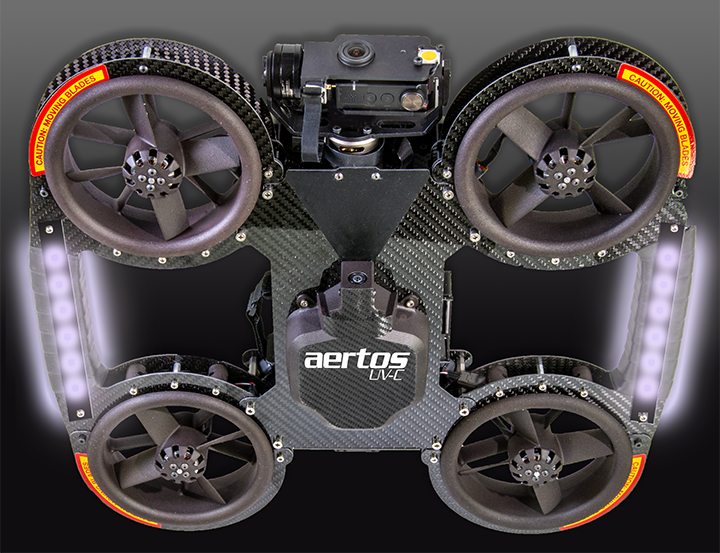
North American companies involved in building and operating small drones are proposing systems that could potentially be used in battling the COVID-19 pandemic.
Canadian drone manufacturer Draganfly on April 21 said the police department in Westport, Connecticut, is testing the company’s “pandemic drone” technology to detect individuals with possible symptoms of COVID-19 in crowds of people.
Draganfly, which is serving as systems integrator, announced a partnership to develop the pandemic drone with the University of South Australia and health care data company Vital Intelligence in late March. The aircraft-mounted system, which combines a specialized sensor and computer vision image analysis, can measure heart and respiratory rates and detect infectious conditions from a distance of 190 ft.
“One of the major problems for cities and towns like Westport in managing and responding to a pandemic like the COVID-19 virus is finding out who could be infected and how widespread the disease has spread,” Westport First Selectman Jim Marpe said. “One way to do this is to look for underlying symptoms.”
Drone services provider DroneUp, vehicle manufacturer Workhorse Group, UPS and the Virginia Center for Innovative Technology (CIT), an economic development agency, said they are collaborating on a “fast-paced simulation” to determine how drones can supplement emergency response and certain patient care during the pandemic.
The participants conducted tests over three days in early April on the vacant campus of St. Paul’s College, in Lawrenceville, Virginia, which has been closed since 2013. Plans call for them to deliver a report to the White House with findings and recommendations.
“We’ve proven through ongoing commercial programs that effective drone delivery of medical products is faster than conventional ground-based transportation,” said Scott Price of UPS, which operates a drone service that transports blood samples at WakeMed Health and Hospitals in Raleigh, North Carolina.
“Drones offer a low-touch option for delivery of lab specimens and medical products that could make a significant impact in an urgent response application,” Price said.
Earlier in April, Digital Aerolus, of Lenexa, Kansas, said it has developed the first indoor disinfectant drone fitted with C-band ultraviolet (UVC) lights, specifically designed to combat the coronavirus. The Aertos 120-UVC can fly stably inside buildings without using GPS for positional reference, providing a 99% disinfection rate within 6 ft. of surfaces, the company said.
OMI Environmental Solutions, an oil-spill response company based in Belle Chasse, Louisiana, says it has lined up multiple clients for its drone disinfection service for large indoor areas such as stadiums, convention centers and warehouses. OMI’s eight-rotor drone disperses a mist of Environmental Protection Agency-approved agents that kills the novel coronavirus and nearly all bacteria, the company says.
California-based Zipline, which operates long-range, fixed-wing drone delivery operations in Rwanda and Ghana, started transporting COVID-19 samples from rural clinics to laboratories in the Ghanaian cities of Accra and Kumasi on April 1. Zipline is pressing the case with the FAA to expedite plans it already had to begin medical deliveries in the U.S.





